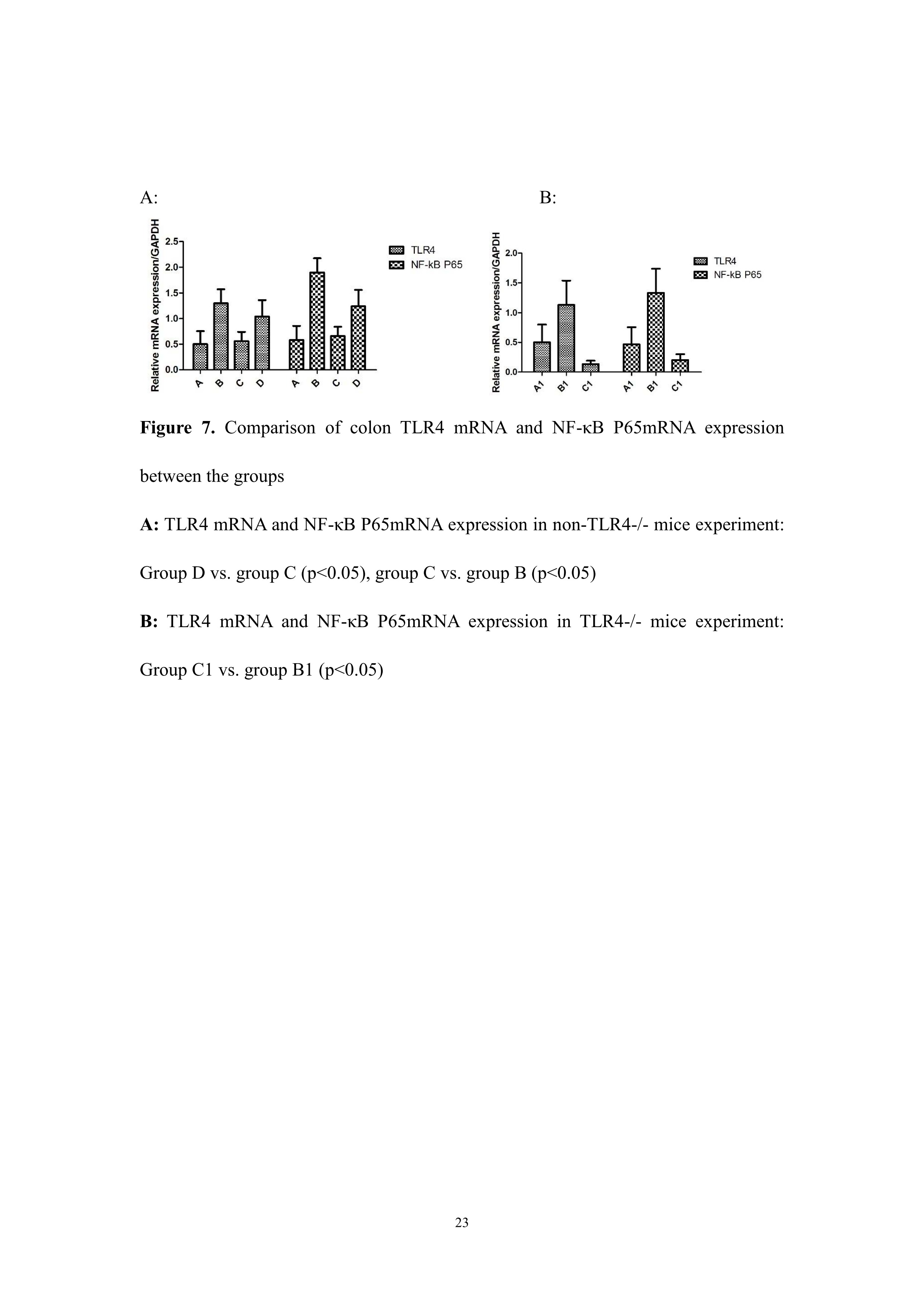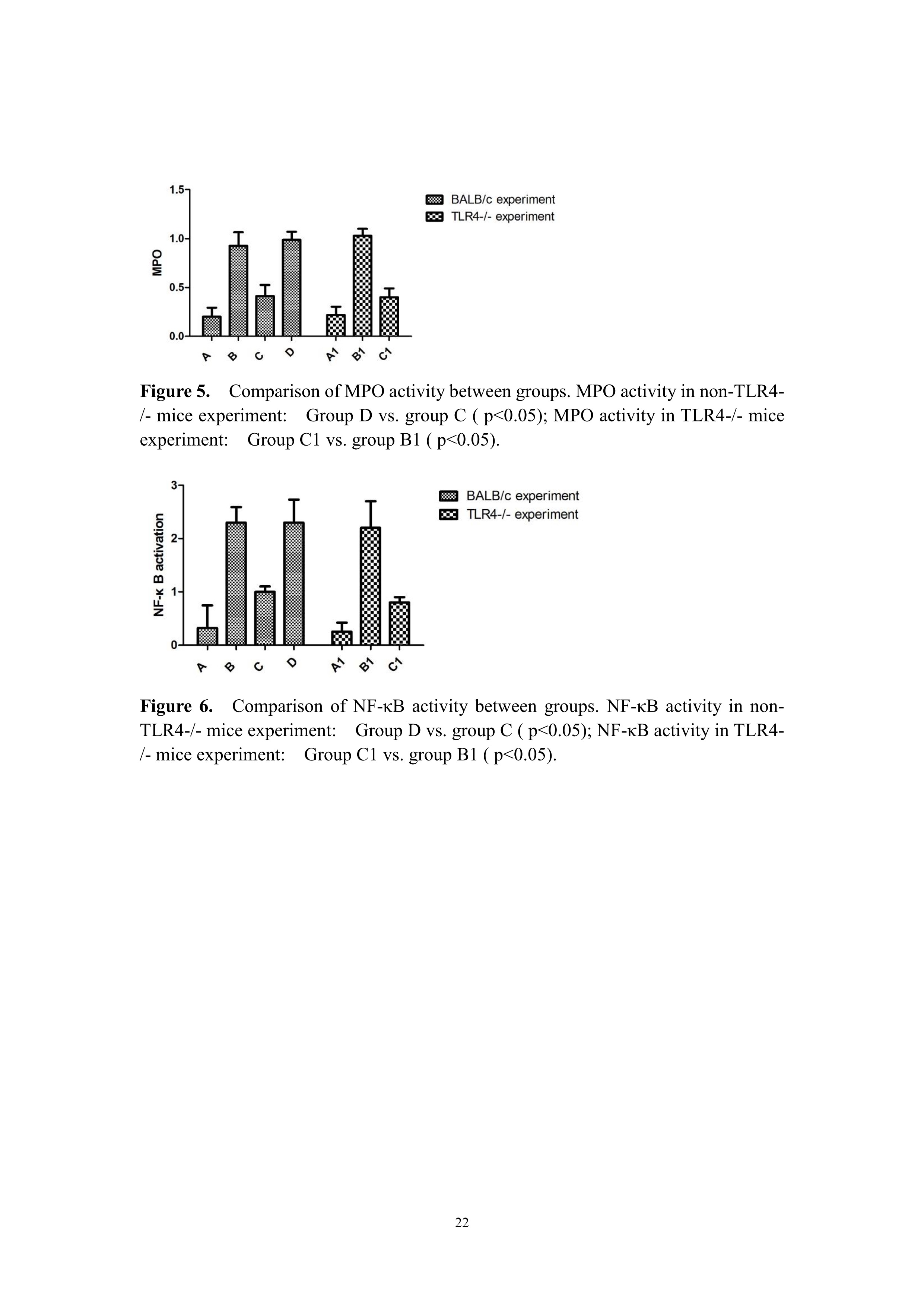
|
ESCHERICHIA COLI PROMOTES DSS-INDUCED MURINE COLITIS RECOVERY THROUGH ACTIVIATION OF TLR4/NF-κB SIGNALING PATHWAY Wanglin Li*, Jiabao Lu, Boye Dong, Feng He, Jie Cao Department of Colorectal Surgery, Guangzhou First People’s Hospital, Guangzhou, China Background Increasing evidences suggest the intestinal microbiota plays a role in the pathogenesis of inflammatory bowel disease. This study investigates the role of Escherichia coli (E.coli) in dextran sulfate sodium (DSS) induced colitis in mice. Furthermore, the associated changes in toll like receptor 4 (TLR4) and nuclear factor-kappa B (NF-κB) are described. Methods A DSS induced mice model of colitis was created. There were experiment 4 groups: Group A: non-DSS induced colitis, normal drinking water; Group B: DSS induced colitis only; Group C: DSS induced colitis in bacteria depleted mice; Group D: DSS induced colitis in bacteria depleted mice treated with E.coli. The control group was not administered DSS. The experiment was performed using BALB/c mice, then repeated with C57/B6 and TLR4-/- mice. Outcomes of clinical condition, colon histopathology, tissue myeloperoxidase (MPO) and immune histopathology were assessed. Results Mice with DSS induced colitis treated with E.coli treatment had an enhanced recovery, with significantly improved clinical and histological scores compared to the DSS only group. The mRNA expression of TLR4 and NF-κB in the E.coli treated group was also significantly higher. Conclusions This study implies that intestinal microbiota is necessary during the recovery from DSS-induced colitis. E.coli can promote recovery from DSS-induced colitis in mice, possibly through activation of TLR4/NF-κB signaling pathway. 
Back to 2018 Posters |
|||||||||||||||
© 2026 Society for Surgery of the Alimentary Tract. All Rights Reserved. Read the Privacy Policy.
